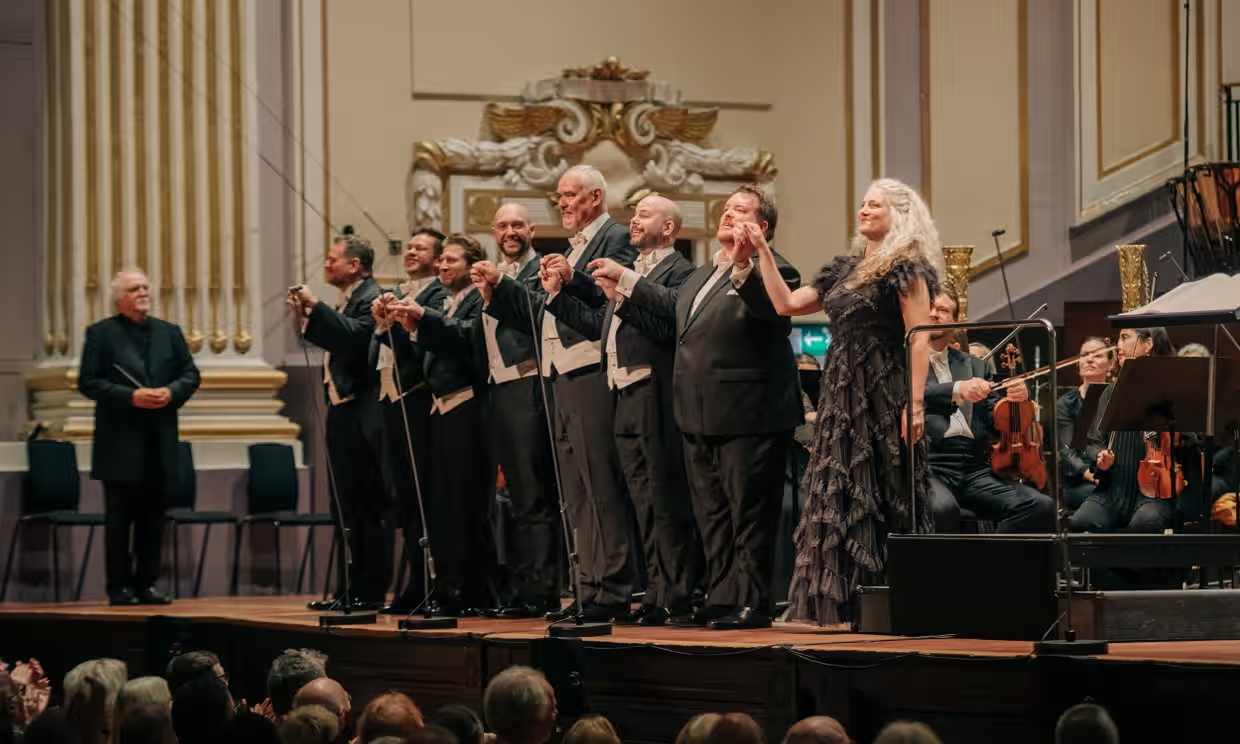Tannhäuser review – Runnicles’ semi-staged Wagner sounds celestial
by Anastasia

With no fully staged, large-scale opera production at this year’s Edinburgh International festival, this concert performance of Wagner’s Tannhäuser had been eagerly anticipated. Its fantastical and elaborate plot make it a tricky work to bring coherence to in a semi-staging, but Sir Donald Runnicles and Deutsche Oper didn’t disappoint.
The young knight Tannhäuser is torn between the carnal allure of the goddess Venus and his longing for the pious Elisabeth. After disgracing himself by singing in praise of Venus at a song contest, he is exiled to Rome to plead for absolution. On his return, he tells how he was rejected by the pope, who informed him that he would only be forgiven when green leaves grow from the papal staff. Heartbroken, he finds his beloved Elisabeth has died praying for his salvation, only to learn from a group of pilgrims that the pope’s crosier has, in fact, sprouted leaves. Wagner went to great lengths to stress that Tannhäuser was not a morality tale, and the opera’s imperatives are notoriously ambiguous.
Making his role debut as Tannhäuser was the American tenor Clay Hilley, whose bright and robust voice is made for its technical demands. Hilley sang with zeal and commitment; it was only slightly disappointing that he was the only singer requiring a score, which lessened the immersive quality of the drama at certain points.
The other soloists were equally impressive, despite apparently having been held up en route to Edinburgh and so performing on only four hours’ sleep. As Wolfram, the US baritone Thomas Lehman (one of the Deutsche Oper’s ensemble members) brought an understated emotional sincerity to the role with a light but rich timbre, effortlessly filling the Usher Hall.
Festival-favourite Emma Bell was superb as Elisabeth, capturing both the divine and vulnerable aspects of her character. Her voice soared effortlessly above the orchestra with a celestial intensity. Irene Roberts, singing Venus, was almost as irresistible, with a suitably beguiling tone.
Under the baton of Runnicles, orchestra and chorus brought Wagner’s score (here the opera’s earlier Dresden version with the addition of the Paris Bacchanale) to life, articulating a huge dynamic range from hushed pianissimos to supernatural fortissimos, and painting a soundworld that went a long way in making up for the lack of staging.
Source: https://www.theguardian.com/



